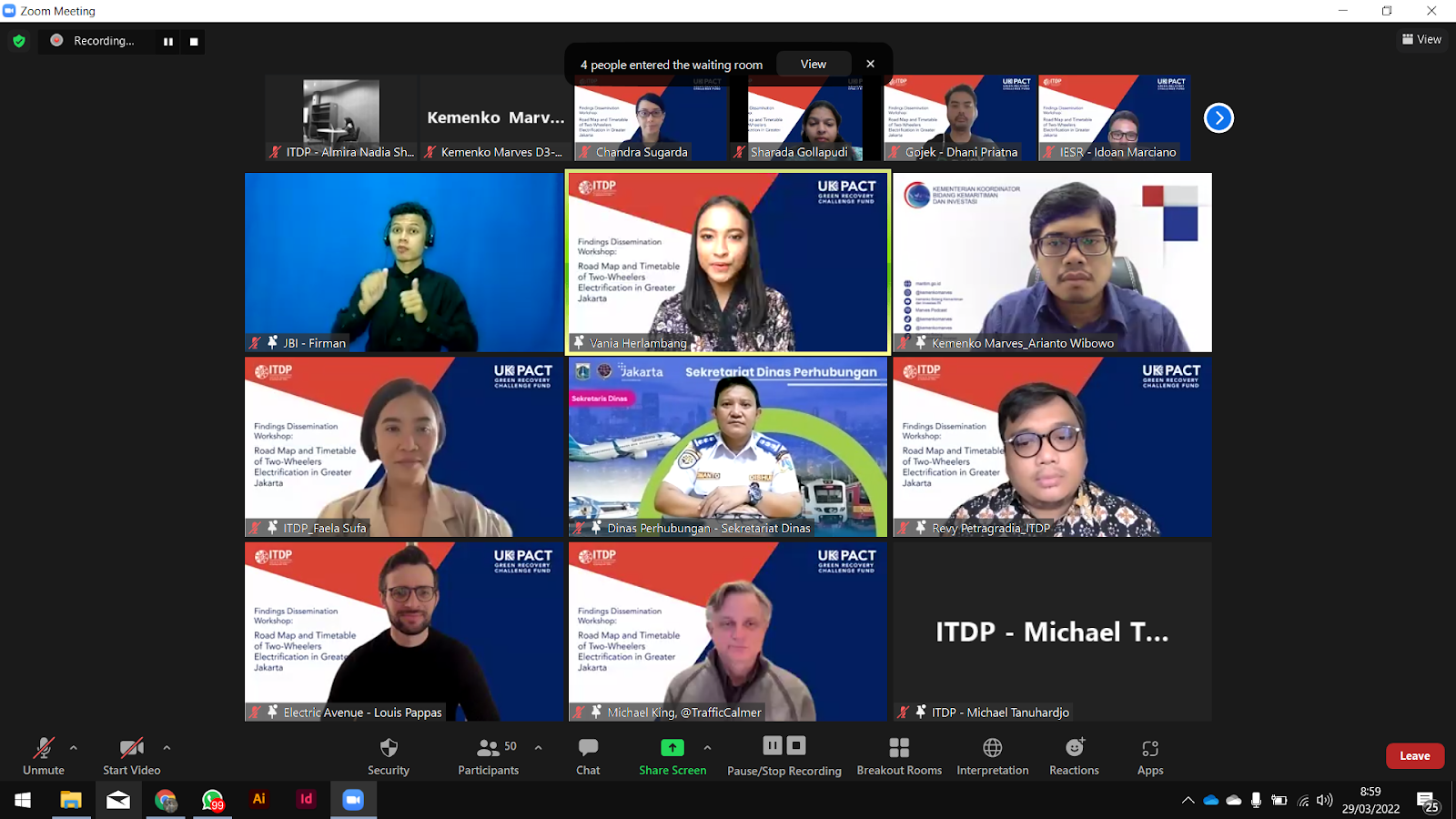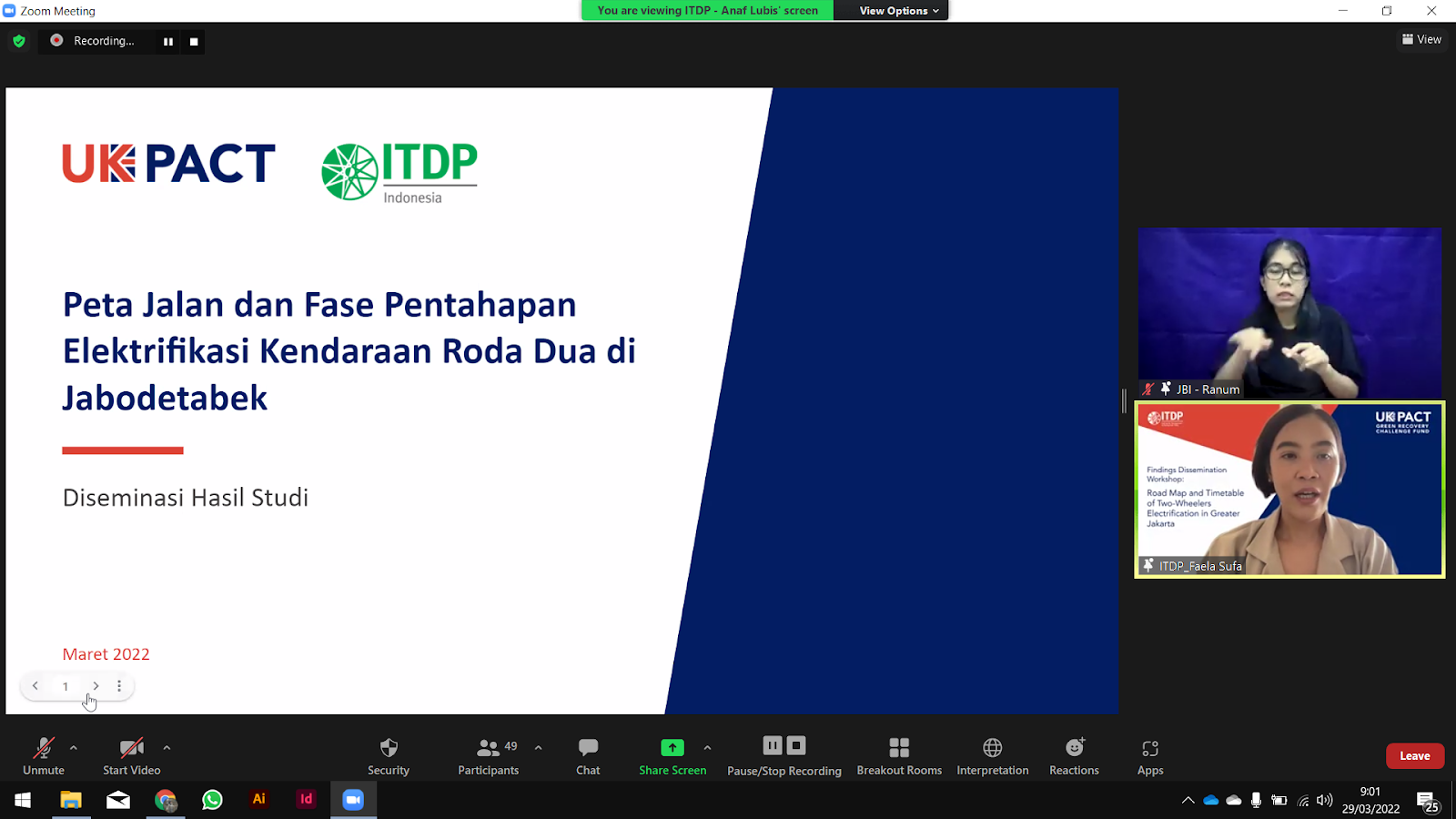As part of the UK PACT programme completion activities, ITDP Indonesia conducted a workshop to disseminate all findings and end results to project beneficiaries, which are the Ministry of Transportation, Jakarta Transport Agency, and Ride-Hailing Operators (Grab and Gojek), as well as to other relevant stakeholders from the national government, local government, and energy companies.

The event was opened by opening remarks from representatives of national and local governments. Mr. Arianto Wibowo, the Head of Manufacturing Industry and Electric Vehicles, the Coordinating Ministry of Maritime and Investment Affairs, said that the national government is still aiming for more electric vehicles on the street. He stated that the government has implemented all required regulatory and technical frameworks to accelerate electric vehicles uptake in Indonesia. From the local government side, Mr. Ismanto, the Secretary of the Jakarta Transport Agency, said that the Jakarta Provincial Government would also support transportation electrification programs as the government aims to reduce carbon emissions in the city. They have implemented further incentives for electric vehicles by exempting them from transport demand management measures, such as the Odd-Even Policy.

Faela Sufa, ITDP Southeast Asia Director, then presented the road map and timetable for two-wheelers ride-hailing electrification in Greater Jakarta. Using a lifecycle analysis, it was found that full electrification of two-wheelers ride-hailing fleets in Greater Jakarta by 2030 would reduce GHG emissions by up to 58%. An analysis of the grid requirement for the electrification program showed that the current grid capacity could supply all the required additional electricity demand.
The event was then continued with a discussion session with project beneficiaries. Both ride-hailing operators, Grab and Gojek, stated that they are committed to further developing the electric vehicle ecosystem in Indonesia by adopting more electric two-wheelers on their fleet. They also feel that the financing issue for drivers to acquire electric two-wheelers is being the main factor preventing higher electric two-wheelers despite their obvious financial and environmental advantages. Therefore, they stated that further fiscal incentives are required to accelerate the electric two-wheelers adoption rate.

The second part of the workshop contains two breakout rooms where technical sessions took place. The first breakout room is the decision-making toolkit training workshop where the project delivery team gave a simulation on how to use the toolkit produced to help stakeholders to replicate the electrification strategy elsewhere. The second breakout room is a focused group discussion on the electric 2W integration to urban traffic guidelines where the project delivery team presented the produced guideline in more detail and discussed with related stakeholders on the opportunities and barriers of implementing recommendations stated in the guideline.
Panelist and Speakers’ presentations can be accessed here.
